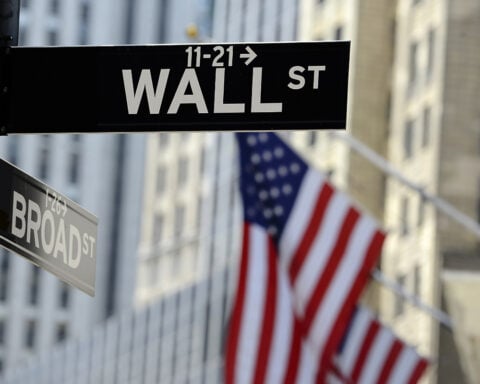US stocks faced a sharp decline on Wednesday as mounting concerns about political uncertainty, rising Treasury yields, and underwhelming tech performance weighed heavily on investor sentiment. All three major indexes—Nasdaq, S&P 500, and Dow—closed in the red, signaling heightened market fragility and nervousness among investors.
The tech-heavy Nasdaq Composite led the downturn with a 1.6% drop, while the S&P 500 and Dow each fell around 1%. For the Dow, this translated into a loss of more than 400 points by the end of the trading day, following an earlier dip of over 600 points in the morning. This marked the third consecutive day of losses for US markets, reflecting a trend of increasing volatility.
Adding to the market’s unease is the rising likelihood of Donald Trump returning to the political stage, with polls showing his election prospects tightening. Investors are preparing for the impact of his potential policy changes, particularly his proposed import tariffs aimed at boosting domestic manufacturing. These tariffs would likely raise consumer prices, reversing the deflationary trends that have kept inflation near the Federal Reserve’s 2% target.
Further complicating the economic outlook, Trump’s policies could increase government borrowing, which may deter investors from purchasing US debt. In response to higher risk, investors are expected to demand increased interest rates for government-issued securities, adding further pressure to bond markets.
Meanwhile, Treasury yields continued their upward march, with the 10-year note hitting 4.25%, the highest level since July. This rise in yields has created additional strain on stocks, as higher bond returns make equities less attractive. The tech sector bore the brunt of this shift, with major companies like Nvidia and Apple recording losses of 2.8% and 2.2%, respectively, ahead of their upcoming earnings reports. Investors are paying close attention to these earnings to gauge the financial impact of the companies’ large investments in artificial intelligence.
McDonald’s stock also weighed down the Dow, dropping 5.1% after an E. coli outbreak linked to Quarter Pounders in the western United States resulted in one death and multiple hospitalizations. At one point during the day, McDonald’s shares fell by as much as 7%. Boeing contributed to the downward pressure as well, following a disappointing quarterly earnings report. The company’s new CEO indicated that Boeing’s recovery would take time, dampening investor confidence.
Adding further complexity, mixed signals from the Federal Reserve have made the economic landscape even harder to predict. Strong economic data has led to speculation that the Fed might maintain higher interest rates for an extended period, a scenario that could challenge corporate profitability and consumer spending.
The recent selloff reflects the fragility of the equity market, with many investors concerned about the challenging environment ahead. Expectations for strong earnings next year have increased the importance of forward-looking guidance rather than past performance. This cautious sentiment is likely to persist as market participants prepare for further yield curve steepening and increased turbulence in the coming weeks.
With rising Treasury yields, political uncertainty, and potential disruptions in the tech sector, Wall Street faces a volatile period that may challenge even seasoned investors.







